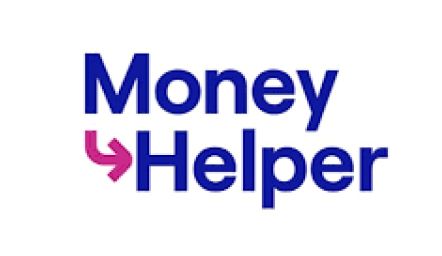FAQs
FAQs
Yes, everyone must pay council tax, however there are a few exceptions and you may be entitled to a reduction in the amount that you pay based on your circumstances.
Council tax is charged based on the value of your home, so if you think that you are being charged for the wrong band, then you can ask for a reassessment.
In some situations, certain properties may be exempt from council tax, including if:
- The property is empty due to a death
- All residents are full-time students
- The property is owned by a charity
- All residents are under 18
- It’s a self-contained flat where a dependent lives
- Any residents have severe mental impairments
- The property is empty as the occupier is being cared for elsewhere
You should contact your council and explain your situation, you shouldn’t just stop paying.
You can ask them if they’ll let you pay your council tax in smaller amounts and you’ll probably be asked to commit to paying a regular amount each month. If these payments mean you won’t be able to afford essential costs such as your rent or mortgage, it’s important that you tell the council.
If you’re on a low income, you might be able to get a reduction on your council tax bill. You will need to speak to your local council regarding this.
If you don’t fall into any of the exempt categories, you may be able to apply for a council tax reduction. This tends to be available to those who live with someone who is exempt from council tax, as well as those who live alone, claim benefits, are a student, are on a low income or are in severe financial hardship.
You may also qualify for a reduction in council tax payment if you are on the following benefits:
- Jobseekers Allowance
- Income Support
- Pension Credit
- Employment and Support Allowance
- Universal Credit
To find out whether you qualify for a council tax deduction, you can check the Government website here.
If you miss a payment your council will send you a reminder and will allow you seven days to pay the outstanding installment.
If you don’t pay within this time, you will be asked to pay all outstanding council tax debt within a further seven days. If you miss this payment, they may take legal action against you. This is called ‘enforcement action’.
The council will usually want you to pay the debt within the current tax year and they might:
- send a bailiff to take items from your home
- take a fixed percentage from your pay – this is called an ‘attachment of earnings’
- take money from your benefit payments, such as Universal Credit
- secure the debt against your home if you own it, called a Charging Order
In the possible worst case, non-payment of council tax debts could lead to a prison sentence. You could be sent to jail for up to three months if the court decides that you don’t have a good reason not to pay your council tax and/or you refuse to pay it, and bailiffs haven’t been able to recover the debt.
It is possible to write off council tax debt, but it will depend on how you choose to deal with your debts, and the decision will lie with your local authority. They can choose to reduce the balance of your council tax debt, write it off completely, or offer a discount on your bill.
Council can often be quick to turn to legal action to recover the debts owed, meaning you could find bailiffs appearing at your doorstep.
Entering a debt solution, such as an IVA, could allow you to include your council tax arrears in your IVA proposal and have them written off completely.
The items bailiffs can take from either a business or residential premise is limited. They can only take items that can be sold at auction, for example, televisions, consoles, tablets, jewellery, office equipment, machinery and vehicles (if not on a hire purchase agreement).
Council Tax Debt Support strongly advises you not to let them in but if you do, they may take some of your belongings. They can’t take anything that is attached to the wall, clothing, bedding, fridge, cooker, goods needed for your basic household needs or someone else belongings, such as your partners computer as long as you can prove it doesn’t belong to you.
Bailiffs can charge fees for visiting your property which will then be added on to the debt you already owe. These fees don’t differ depending on the type of debt you owe, the only difference in bailiff costs is when a High Court bailiff is involved; these charges are higher.
Bailiff fees:
- Compliance stage £75 (plus an extra 7%)
- Enforcement fee £235 (plus 7.5% if over £1500)
- Sale/Disposal fee £110 (plus 7.5% if over £1500)
High Court bailiff fees:
- Compliance £75
- First enforcement stage £190 (plus 7.5% if over £1000)
- Second enforcement stage £495
- Sale £525 (plus 7.5% if over £1000)
Bailiffs, High Court Enforcement Officers (HCEO) and debt collectors are different roles, but essentially, they all have the same purpose: retrieving a debt on behalf of a creditor. They can all visit your home but have different powers when it comes to entering your premises and taking your goods.
HCEOs act on behalf of the courts and can force entry but only after exhausting all other options. Debt collectors do not hold the same power as they can’t actually seize any goods but are used more by creditors as a technique to try and intimidate people into settling their debts.
Open and read the letter. If a bailiff does come round, ensure all windows and doors are locked, do not let them in and never sign any paperwork that a bailiff puts in front of you.
Police Officers do not help bailiffs in any way to enter your home. Sometimes bailiffs call the police but this can only ever be to prevent a breach of the peace. If you feel intimidated by bailiffs you are well within your rights to call the police.
A controlled goods agreement is a contract used between a bailiff and a debt, allowing the debtor to retain the right of use of their goods in return for a promise that they will pay the debt according to the agreed payment schedule.
A valid controlled agreement must comply with the following:
- Signed by the debtor person authorised by them
- Signed by the bailiff
- The debtor must understand it
- The debtors name and address
- The date of the agreement
- The names of the persons entering the agreement, the debtor and the bailiff
- Contact phone number for the bailiff company
- The hours of operation for the bailiff company’s contact number
- Description of the goods listed, including manufacturer model and serial number, if a vehicle, the registration, colour and description
- A schedule of the payment terms the debtor must make to pay off the debt
- If the goods is a vehicle parked on the road, (a highway), the bailiff must leave a”notice after entry, and/or taking control of goods on a highway”




